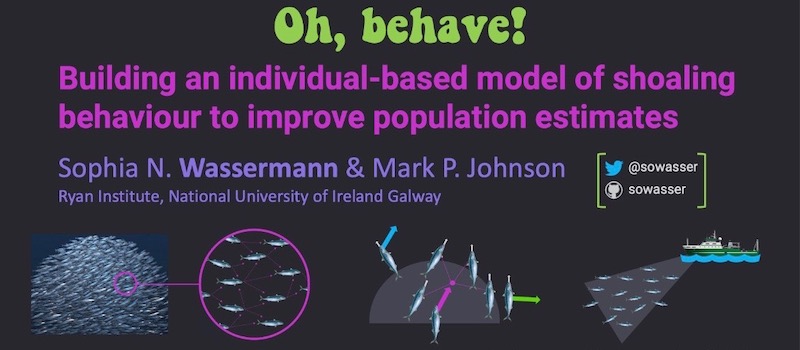Hello! If I met you at ICES, it was so good to meet you. If you’re at my poster when I’m not there, sorry I missed you. If you have no idea what I’m talking about, this post contains videos to accompany my poster at the ICES Annual Science Conference 2019 in Gothenburg, Sweden. You can find a copy of my poster here.
Video 1: Theoretical model in action
My model is an individual-based model, based on a modified Boids model. It was built using an open-source modelling framework in Python, called Mesa. All of my code is also on GitHub. This video shows the visualization created by the modelling framework. The little dots, or “fish”, move around the space following the rules and parameters determined in the model. They are told to move towards each other, align, and separate at a set distance. The input parameters are: their movement speed, the vision radius within which they spot neighbours, and the distance at which they separate.
Video 2: Incorporating real fish
Some of the real-world data I’m incorporating to parameterize my model comes from digitized video of stickleback fish. These are a great training set because the low water level effectively constrains the fish to 2-dimensional space. They were tracked in LoggerPro. I recorded the position (dots on the nose and tail) and inferred heading for each fish in each frame of the video. For this example, please ignore the colors, as the program runs out of unique colors after a point.
Thank you for your interest and please get in touch if you have any questions or want to discuss anything on the poster.

